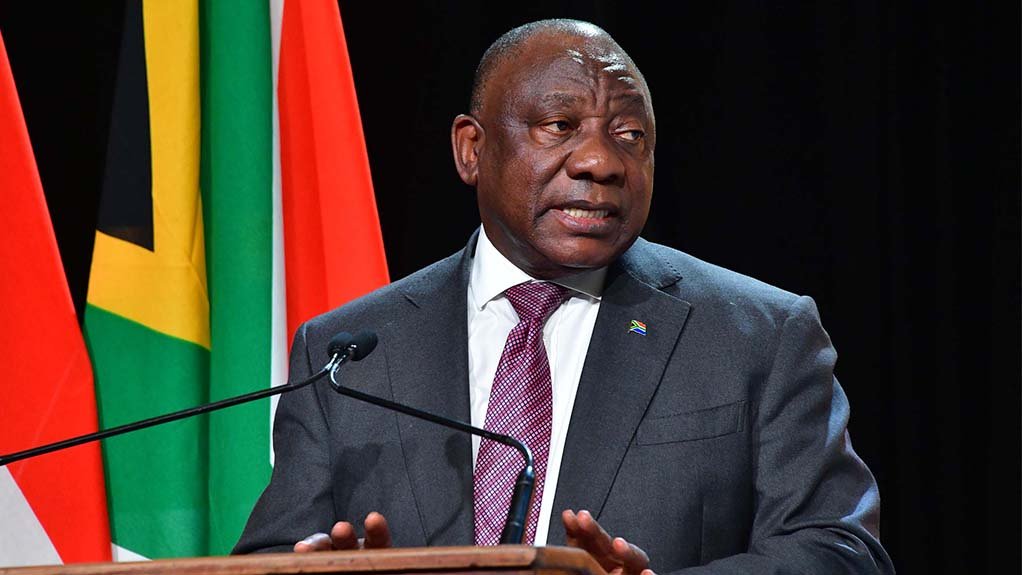President Cyril Ramaphosa has warned that failures at a local government level are widening the trust deficit between national government and the citizenry.
Ramaphosa was speaking during Thursday’s national conference focused on local government accountability, service delivery and human rights, organised by the South African Human Rights Commission (SAHRC) and the Commission for the Promotion and Protection of the Rights of Cultural, Religious and Linguistic Communities.
Ramaphosa said unless failures were remedied, South Africans could become disillusioned with democracy itself.
He stressed that local government was one of the most important custodians of the socio-economic rights of South Africans.
“Efficient and affordable service delivery could mark the difference between leading a life of dignity, as promised by our Constitution, and a life of squalor, misery and deprivation. When local government works – when basic services like water, sanitation, education, electrification and health care – are distributed efficiently and equitably, people’s quality of life is improved, businesses thrive and economies grow and the dignity of our people is assured,” he said.
He warned that when local government delivery failed, the impact was direct and devastating and it had an immediate overarching negative impact on the lives of South Africans.
He said it was deeply disturbing that recent reports from the Auditor-General, National Treasury and Cooperative Governance and Traditional Affairs showed that the majority of the country’s municipalities were failing.
“The National Treasury classifies two-thirds of South Africa’s 257 municipalities as being in financial distress, with only 41 receiving clean audits in the past financial year. What this means is that many municipalities are unable to deliver basic services and are unable to build and upgrade clinics and hospitals, and fix roads,” Ramaphosa outlined.
He stressed that political contestation and infighting, lack of skills, failure to adhere to legislative prescripts, poor governance, lack of accountability, and “super corruption” were causing instability in municipalities and eroding the provision of services.
“Continuing along the current trajectory is neither viable nor sustainable. It undermines the constitutional promise of human dignity. It threatens economic growth and investment. It is a threat to our constitutional order because local government is in many ways the most important sphere of government - it operates where our people live, it operates where businesses invest and it operates in a sphere where basic human rights of our people need to be actualised,” he said.
GOOD GOVERNANCE
Ramaphosa went on to say that while good governance was a prerequisite for efficient local government, facilitating access of local communities to municipal decision-making was essential to participatory democracy.
He envisioned that the ideal municipality was accessible, provided opportunities for public engagement, and communicated while being considerate of local needs such as language and media platforms.
“In an ideal municipality, customer care and feedback management systems are functional and implemented effectively. In an ideal municipality, local government has regular outreach with communities on matters affecting development and consults other stakeholders, such as businesses, NGOs and community-based organisations,” he added.
He said government’s aspiration was that citizens be partners in their own development.
SERVICE DELIVERY PROTEST
Ramaphosa said the rise in service delivery protests, many of which turn violent, was a barometer of public dissatisfaction with the non-delivery of services.
He noted that the reasons for protests varied, and that social and economic dynamics, high unemployment and failing municipal governance all inevitably played a role.
“We are categorical, however, that no matter how legitimate the grievance, arson, looting, violence and damage to property can never be justified,” he stated.
SAHRC chairperson Bongani Majola pointed out that protests occured in the local government arena, some with damage to property the result, adding that it was important to find solutions.
Meanwhile, Majola explained that the SAHRC had played a significant role in monitoring local governments.
He said the commission had noted in its latest statistics, trends showing that the highest number of complaints received related to equality and racism, with the second highest being delivery of socio-economic rights at local government level.
EMAIL THIS ARTICLE SAVE THIS ARTICLE ARTICLE ENQUIRY
To subscribe email subscriptions@creamermedia.co.za or click here
To advertise email advertising@creamermedia.co.za or click here











